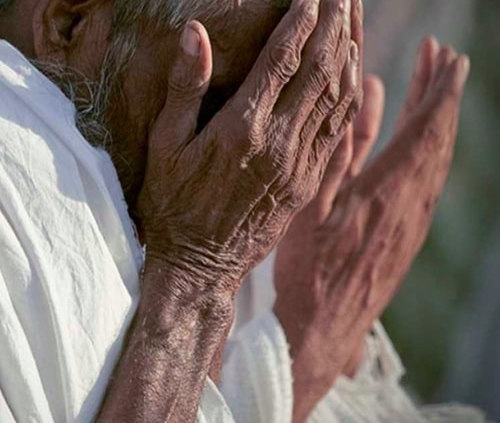What is a Right Intention?
Answered by Shaykh Farid Dingle
Question: Assalamu alaykum
What is a right Intention?
For example, I clothe myself because I do not want to be ashamed by people. When I say to myself that I clothe myself because I want to cover my awrah (because of Allah) I do not believe myself because I know that if Allah would not deem it haram I would still cover myself.
How can someone have multiple intentions?
Allah says: “Then perhaps you would kill yourself through grief over them, [O Muhammad], if they do not believe in this message, [and] out of sorrow.”
Can you explain to me this Ayah? Isn’t it the case here that the prophet had grief over them merely because they would get the punishment by Allah?
Answer: Wa alaykum assalam wa rahmatullahi wa barakatuh,
Dear questioner,
Embryonic stages of worship
The word for intention in Arabic is linguistically related to the word seed (nawa). Allah Most High tells us in the Quran how he makes the seed to come out. [6: 95] He also bring out our intentions and brings them to full fruition.
The issue of intention is so fundamental because it is the topic of why we do what we do: what drives us in every moment we live.
Specific intentions
Specific good intentions are there to change the bad motives we have within us so that we can move towards having one universal good intention: Allah alone.
We use intentions such helping the poor, fulfilling our obligations to others, or avoiding the Hell-Fire, to turn our heart again and again to Allah. Bit by bit the various disperate and sometimes contradictory intentions become one drive to please and thank Allah.
For example, someone wants to put on some clothes. One reason is because they look nice and they want people to see them: a bad intention; another reason is because they want to avoid the Hell-Fire by covering their nakedness in public; yet another is to fulfill the sunna of beautification; and still another is to enjoy Allah’s blessings, by wearing really nice clothes. This last one almost seems to conflict with the first, and also conflict with the shyness and humility this person feels before Allah.
In this myriad of motives and reasons, the job of selecting very specific and pure intentions is paramount: Hell and Paradise are equidistant from such a person as he wrestles with the good and bad within him.
Universal intentions
Over time and with persistent effort, the heart turns more and more towards Allah and all the various and multifaceted intentions become subsumed within one drive to please and know and worship Allah. Allah becomes the Kaaba of his heart. As Saadi put it:
O man of God, take the way of God;
O man of God, take to the Kaaba of divine good-pleasure.
Someone like this can join between more than one intention just like someone who breathes can join between the use of many, many muscles in one natural process.
Dying for grief
The Prophet (Allah bless him and grant him peace) loved Allah and loved his nation and suffered indescribable pains in his work to guide each and every one of those he was sent to. This compassion and concern is what we have to take away from the verse.
As for the explanation of the verse, some scholars have understood it to mean that Allah asked the Prophet as a rhetorical question telling him not to be sad. Others have said that it a phrase of comfort and support. (al-Alusi)
I pray this helps.
Wassalam,
[Shaykh] Farid Dingle
Shaykh Farid Dingle grew up in a convert family in Herefordshire, UK. In 2007, he moved to Jordan to pursue traditional studies. Shaykh Farid continues to live in Amman, Jordan with his wife and kids. In addition to continuing his studies he teaches Arabic and several of the Islamic sciences.
Shaykh Farid began his journey in sacred knowledge with intensives in the UK and Jordan (2004) in Shafi’i fiqh and Arabic. After years of studying Arabic grammar, Shafi’i fiqh, hadith, legal methodology (usul al-fiqh) and tafsir, Sh. Farid began specializing in Arabic language and literature. Sh. Farid studied Pre-Islamic poetry, Umayyad, Abbasid, Fatimid, and Andalusian literature. He holds a BA in Arabic Language and Literature and continues exploring the language of the Islamic tradition.
In addition to his interest in the Arabic language Shaykh Farid actively researches matters related to jurisprudence (fiqh) which he studied with Shaykh Hamza Karamali, Shaykh Ahmad Hasanat, and continues with Shaykh Amjad Rasheed.
